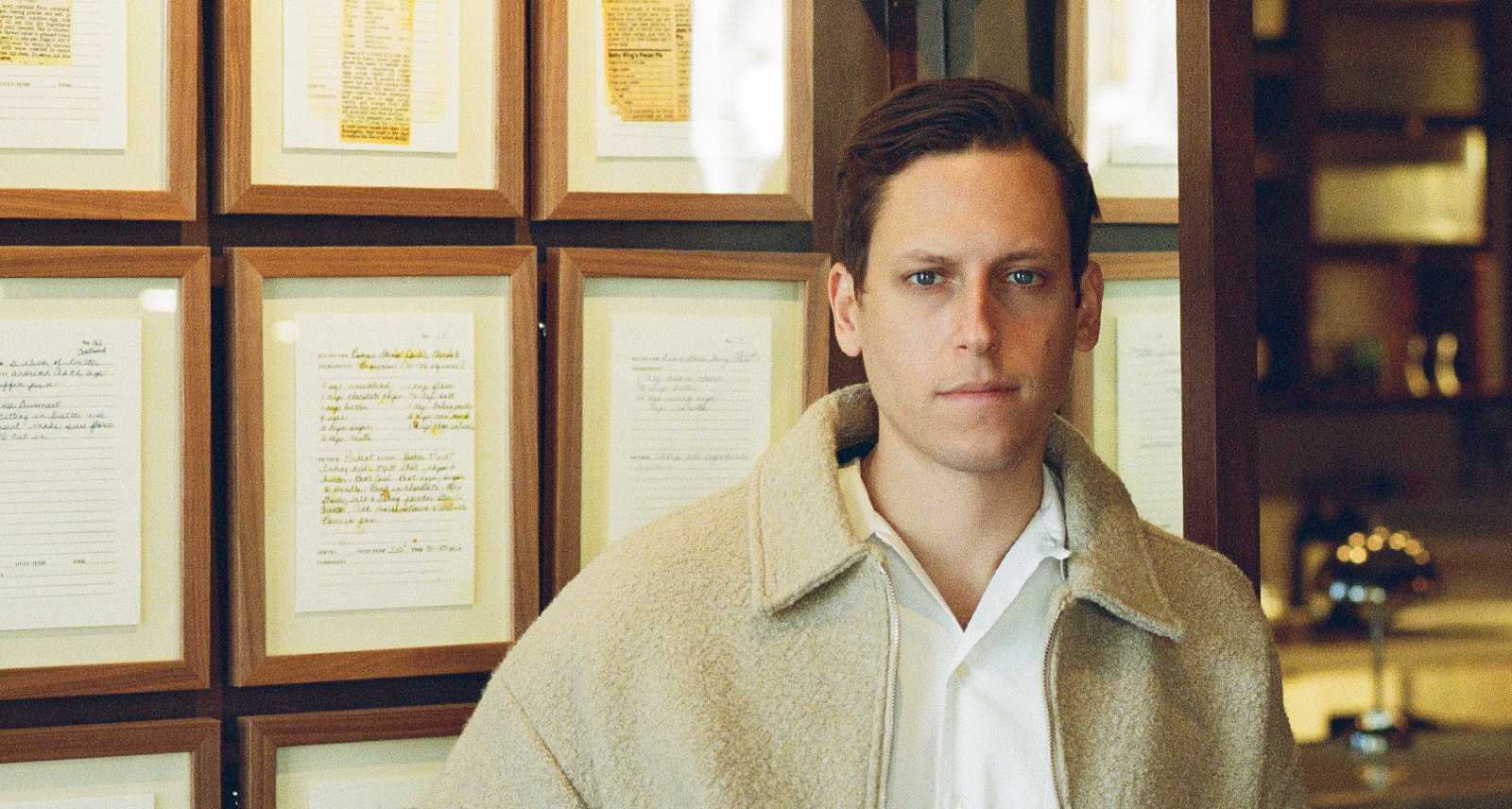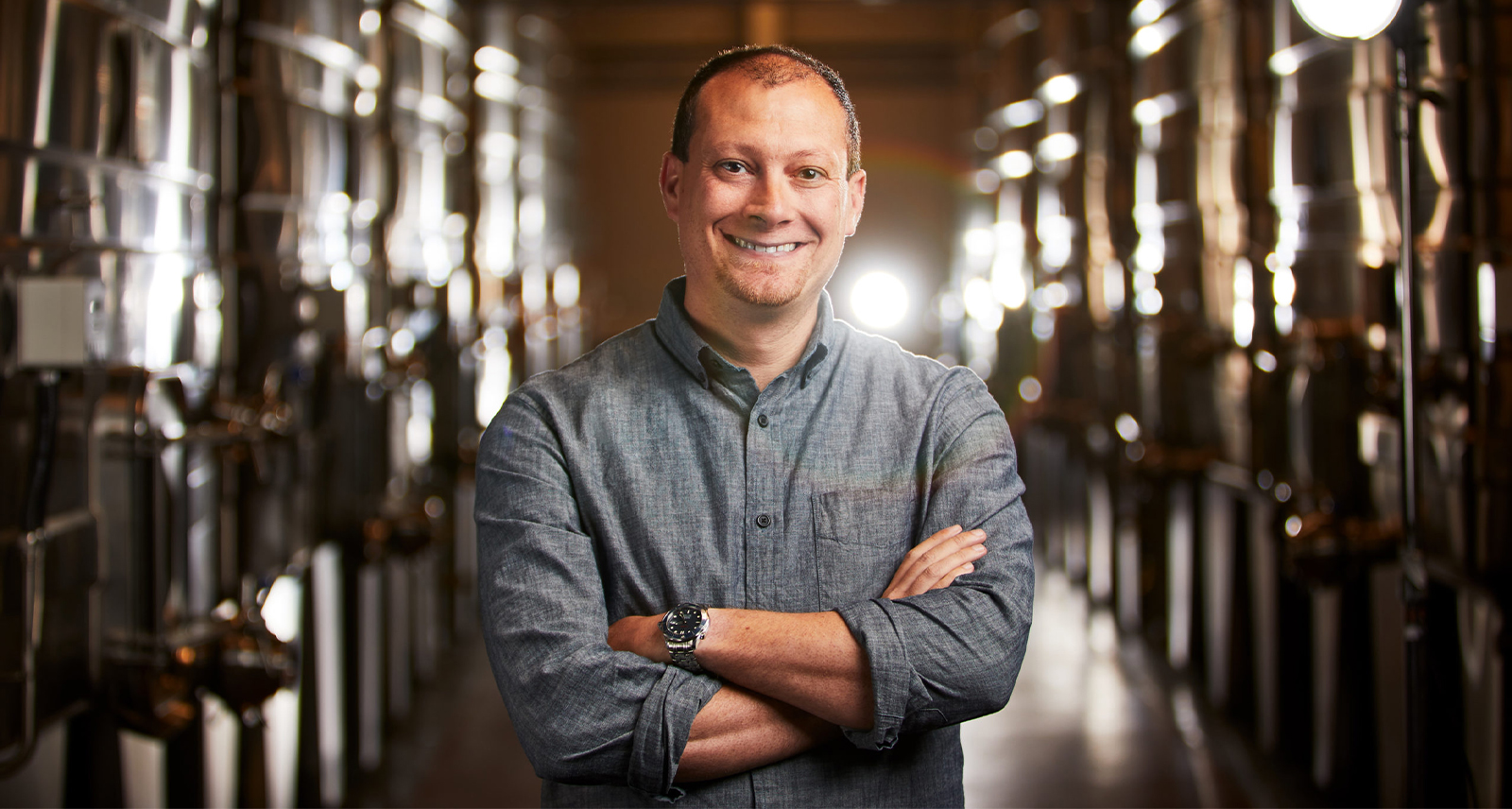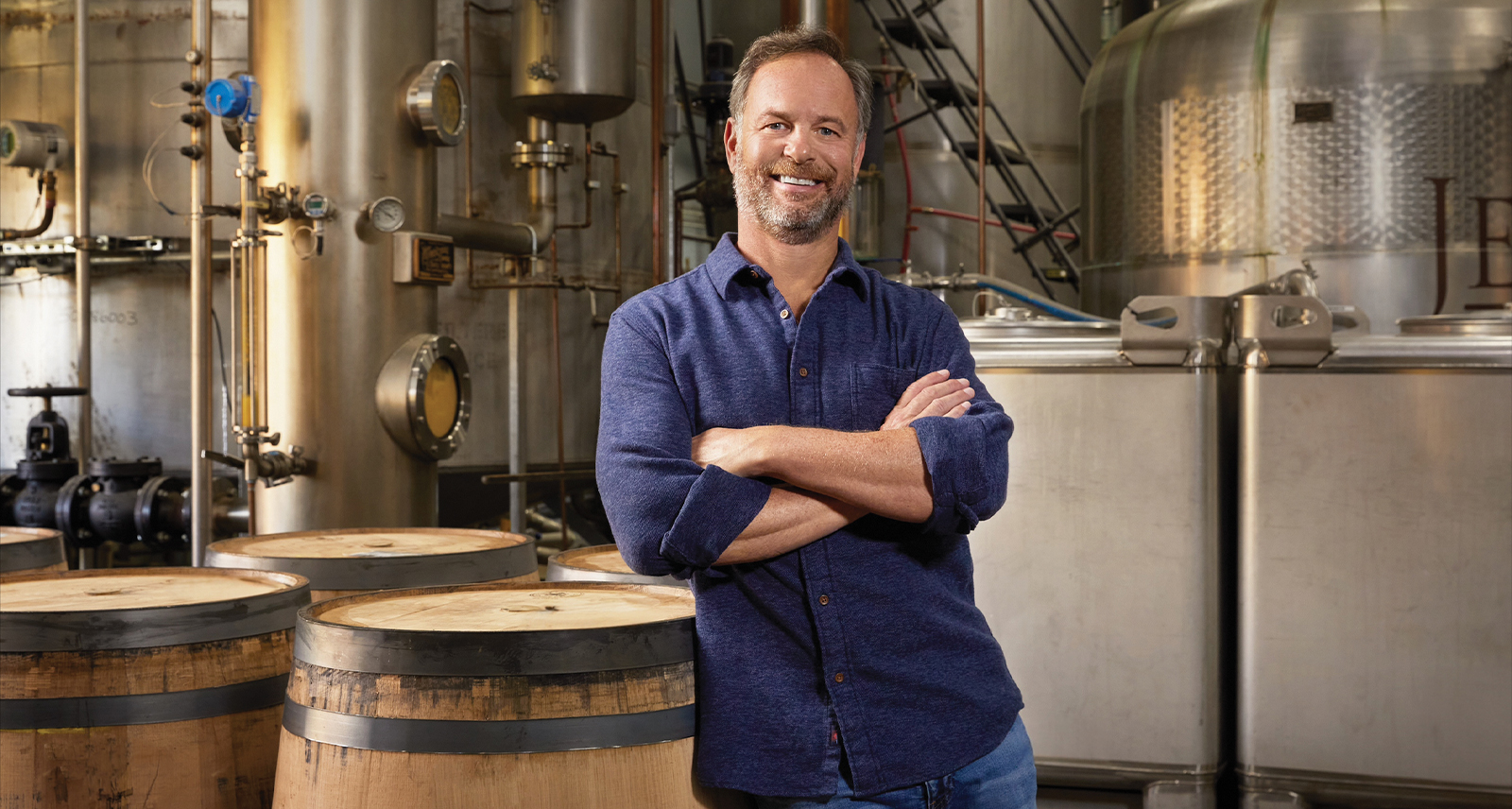Ludi Lin on ‘Mortal Kombat’ and the Importance of Normalizing Asian Stories
More than 23 years after the theatrical release of Mortal Kombat: Annihilation, the blockbuster video game franchise is returning to the big screen with a brand new protagonist—and a whole lot of blood.
The third installment of Mortal Kombat, which will be released simultaneously in theatres and on HBO Max on April 23, follows Cole Young (Lewis Tan), a former MMA fighter who is unaware of the significance of his mysterious dragon-shaped birthmark. After the Outworld’s Sorcerer Shang Tsung sends his best warrior, Sub-Zero (Joe Taslim), to hunt him down, Cole encounters Jax (Mehcad Brooks), a Special Forces Major who tells him to look for Sonya Blade (Jessica McNamee). Soon, the trio finds themselves at the temple of Lord Raiden (Tadanobu Asano), the protector of Earthrealm who grants sanctuary to those who bear the mark. There, Cole trains with experienced warriors as they prepare to take on the Outworld in a high-stakes battle for the universe. One of the warriors that Cole encounters is a Shaolin monk named Liu Kang, played by the Chinese-Canadian actor Ludi Lin.
As one of Variety’s “Seven Asian Actors to Watch” in 2018, Lin has built up an extremely impressive résumé in the last few years, which includes Power Rangers, Aquaman and Black Mirror. Now, the 33-year-old actor is part of two new projects that could change the game for Asian representation in Hollywood: Mortal Kombat and The CW’s modern-day adaptation of Kung Fu.
In a recent Zoom interview from Vancouver, Lin talks to Sharp about the experience of making Mortal Kombat, the joy of working with diverse casts, and the importance of normalizing Asian stories.
This new movie has already been a decade in the making. Was there ever any hesitation on your part to embody such a beloved character in such an iconic world?
There was no hesitation whatsoever. James Wan, who was EPing, and I worked together on Aquaman, and if this movie has been 10 years in the making, it’s been 20 years for me because I saw both Mortal Kombats in the theatre in ’95 and ’97. I skipped school to watch Annihilation. I haven’t seen Annihilation again, and I’m a little hesitant to see it. But I just rewatched the original Mortal Kombat about three weeks ago. I hadn’t seen it for about 15 years, and it’s just as good. So, that’s how I feel about it. I feel great.
If there wasn’t any hesitation on your part, how did you prepare for this role once you had booked it?
It was pretty easy. It was all thumbs, baby. Look at these thumb muscles! I developed them in the three months in training when I found out I was cast in the movie. I fired up the old Sega Genesis, and then I bought a Switch, got MK 11 and just played that. The only character I played then and to this day is Liu Kang, so it was Liu Kang all the way. Physically, I stay in shape most of the time. Depending on the role I want to play, I just adjust myself. I always keep myself a little bit active because I think if I had to start from a dead stop to do this film, I would have never made it to the finish line. It was a sprinter’s marathon all the way through.
The diverse cast of this film truly reflects the global nature of the Mortal Kombat universe, and given the lack of representation in the industry in the past, how gratifying was it for you to work with so much diverse Asian talent on one massive project?
Gratifying is a word to describe it. Another word I would use is it just felt right. It felt like I was at home and I belonged. I didn’t have to fit in because “fitting in” is kind of the opposite of belonging for me. To belong is just to feel natural in an environment and workplace where you’re telling a global story, and it should feel like that. I think it was nice to know that some people recognized that minority is just a very small term defined by a specific place, but when you’re making a movie for the global audience, you’re making it for an audience that is representative of the 60% of Asians around the world. Online, offline, I had so many congratulations and feedback from Asians all around the world—and not just Asians, but people of any colour. This movie is really about underdogs and people on the fringes of society who feel marginalized, who get together and complement each other in their imperfections in order to fight a battle.
With such an incredible cast and crew, how were you all able to work together to pay homage to the Mortal Kombat universe while creating something that can definitely stand on its own merits?
We just played like kids. I think kids have a very strong sense of in-group, out-group, but race is not a part of their mental concept. It’s just whether we can play together, or we can’t. When we’re on a set like that, we’re sharing stories and building a story together, and we all got along so well. We really gelled together like one family.
When the film is out there and the audience sees it, you guys are gonna become one of [the members of] our family as well because it’s not complete until you guys see it. Also, there’s just so many different people with a lot of different acting experiences coming from this movie, like Hiroyuki [Sanada] and [Tadanobu] Asano. They have been in this for so long, but when you’re on set, they’re just like boys. You play together well, and even the boys and the girls, we all got along, so it speaks to the power of culture and storytelling, to how much it can actually unite and gel us.
There’s been quite a lot of buzz about the amount of blood in this movie, and while blood is certainly expected in a movie with an R-rating, I don’t feel like any of it was gratuitous. How do you think Liu relates to the concepts of blood and family that are most prevalent in this movie?
[The director] Simon [McQuoid] wanted this reincarnation to tell the story of blood, so you nailed it on the head. We were gonna call it There Will Be Blood, but another movie took that name, so we had to name it Mortal Kombat. (Laughs.)
But if we’re talking about blood in terms of family blood and blood running through every one of our bodies, then for me, Liu Kang is the heart. Liu Kang has been there from the very beginning and he will be there at the end, and Liu Kang is the one thing that pumps energy and, like you said, blood and humanity throughout the entire universe of Mortal Kombat.
In addition to Mortal Kombat, you’re currently working on the Kung Fu reboot in a recurring role. What does it mean to you to be part of two projects that will break boundaries for Asian representation in Hollywood?
It means it’s working! It means we’re doing everything that I’ve been striving for. We’re making progress, and there’s so much more to do. Kung Fu is the first primetime [drama] series that actually features an Asian-American family. It’s got a wonderful female lead who kicks ass—that’s another difference. It just feels like we’re destroying that tokenism that is so prevalent when you’re telling Asian stories. We’re destroying tropes where Asians don’t speak or women are festishized. We’re getting our faces out there. We’re speaking out and we’re speaking [clearly], and that’s the most important thing for me. As long as we become familiar and our stories become relatable, then finally, we won’t be seen as the “other” or “exotic” or anything like that.
Like you said, for decades, Hollywood has followed a troubling trend when it comes to portraying Asians. Asian women have been hypersexualized, while Asian men have been desexualized and seen as nerdy and undesirable. What do you think needs to be done for Hollywood to be more open to authentic Asian-led stories that show us in all of our fullness and all of our humanity?
Look, I don’t really care what Hollywood does. I care [about] what I do and what the people around me do. I think we need to take ownership, so what I think is—and people are free to disagree—the previous generations didn’t have an easy time at this. We’ve been coming here since the 1800s, and nobody had an easy time. A lot of people had to sacrifice, really, their dreams to build stability because you can’t get after what you want, which is what your dreams tell you to do, unless you can actually put food on the table and survive. Once you can do that, in order for your heart and your whole human being to survive, you need to dream and you need to pursue those wants. And whether your parents like it or not and tell you, “No, you need to get a real career or a real job or whatever,” you really need to pay them back by saying, “Look, don’t worry about it. You did that for me, [and] this is what I’m doing for you now. I’m showing that we’re more than just our bodies. We’re a culturally strong identity that we can actualize something beyond just the elimination of fear. We can own that fear and actually succeed and achieve something wonderful.
You don’t really care what Hollywood does, but you’ve always been very particular about the roles that you play and you’re no stranger to massive cinematic universes.
Well, look, I don’t care what Hollywood wants, but I do care if we want each other, right? And I think both Hollywood and the Asian community can benefit from wanting each other. Being on Kung Fu, I know so many of my friends who are Asian and just a gambit of different Asian diaspora are feeling invigorated right now because a series like that is in town. They can see themselves in a role, and I know so many accounting friends who are like, “Hey, I’m gonna start acting!” (Laughs.) I know so many of my friends who wanted to do acting before, but they pursued something else, again, to create some stability, and they’re looking into things again.
So, this is how we can change our narrative, to be able to tell our story to a broader audience and to humanize us. I think dehumanization is just a sign of laziness. It’s so easy to fall into. It takes work to actually tell our stories, to be a full human being. Also, [we need to] empower women because Asians literally represent half of the Earth’s population. They’re your mothers, they’re your daughters, so empower them and make them fleshed [out] and make them have their desires and their dreams, and stop fetishing them. Own up to your manhood and support women, so that tragedies like what just happened [in Atlanta] don’t happen again.
You’re absolutely right, and I think you’ve definitely hit the jackpot with both Mortal Kombat and Kung Fu coming out at around the same time.
I can’t wait for you guys to see both these pieces. They were a big thing to tackle because I play Kerwin on Kung Fu and they literally describe him as “impossibly charismatic.” That’s a pretty high bar! (Laughs.) I mean, I can try, but how do you achieve the impossible? Look, I was born in China and this, what I’m doing right now, if you told me back then, would have been impossible, and I’m doing it. Anyone can do it if I can.
This interview has been edited and condensed for clarity.










